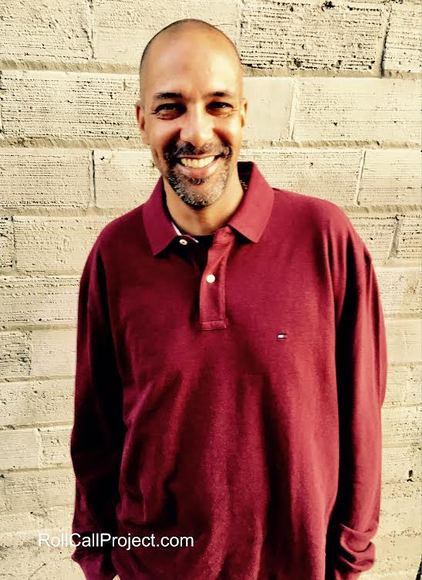 Years in Education: 20+ Black + White Straight Male Former K-12 Teacher Current Hip Hop, Sports Culture, and Intercultural Communications Professor Q: What do you have in common with your students? A: One commonality I share with my students is the relationship of learning that flows freely between us. The student-teacher dynamic is sometimes viewed through a didactic, one-way lens which suggests classroom learning runs in a single direction: from teacher to student. As someone who has literally taught all levels from kindergarten to graduate school over the course of 25 years in the field, I can say without hesitation that I’ve learned far more from those students than they could have ever learned from me. Being a black male kindergarten teacher in the 1990s, I may have seemed like a unicorn to public schools, but at Zion Preparatory Academy I was just one of a number of African American men working in K-5 classrooms. Lessons from both the personal and pedagogic relationships with those 5 and 6 year-olds, which included the intentional building of “academic self-esteem,” have helped make me the teacher I am today. Another thing we have in common is a desired outcome of success. While I have seen very few, if any, students who truly did not want to be successful, I have come across a number of teachers who, either by theory or practice, express expectations and a professional cynicism which amounts to removing the wings from an airplane then expecting it to fly. The argument that these negative attitudes on the part of the teacher can be subconscious does not minimize the damage done, and in fact only emphasizes the need to practice rigorous and regular professional introspection. A genuine expectation of success, even if it is not achieved by all, still allows students to operate within a context of authentic teacher investment. Q: Does it matter that students and teachers have things in common? A: Yes, it does. The follow-up question is: What are those things? For example, much has been made about the relatively low numbers of teachers of color in the United States. However, I’ve seen firsthand that being a person of color is not an automatic qualifier to be an effective teacher for students of color. On the flip side, I have also witnessed proof that being white does not automatically disqualify one from effectively educating students of color. In all cases it is the educational professional’s responsibility to initiate and nurture ties with students, which then can provide the proper foundation for relationship scaffolding. Daudi Abe is a Seattle-based professor, writer, and historian who has taught and written about culture, race, gender, education, communication, hip-hop, and sports for over 20 years. He has appeared on national media such as MSNBC and The Tavis Smiley Show. His forthcoming book is Emerald Street: A History of Hip-Hop in Seattle. Learn more about Dr. Abe at drdaudiabe.com. Photo (c) 2017 Kristin Leong
1 Comment
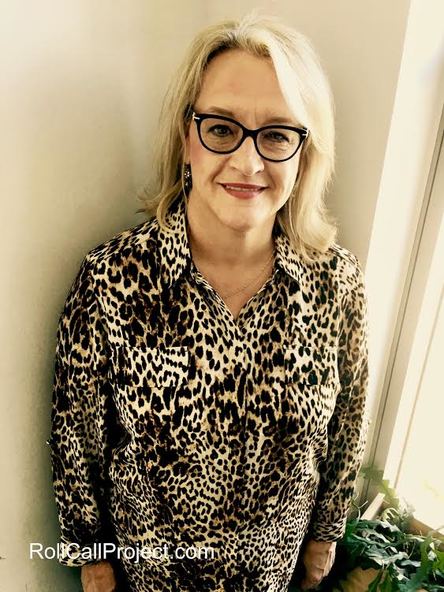 Years in Education: 7-10 American Indian Multiracial Female Heterosexual 6--12th Grade Gifted and Talented Teacher Q: What do you have in common with your students? A: Commonalities between me and my students: --Diverse ethnicity --Cultural customs --Rural living I myself am considered to be highly creative with some ADD tendencies and I am secondarly gifted in Math. Gifted students are special people. They are highly intelligent, but not always across the board. Gifted students often times do not learn or function well in the traditional classroom; their learning styles and tendencies tend to lend towards unconventional learning methods and more exploration and project-based experiential learning. My relationship with my students is different than most teacher/student relationships because I spend a ton of time with the kids on projects, and on local and cross-country trips. These are experiences that the majority of students do not receive. Q: Does it matter that students and teachers have things in common? A: Yes, without commonality relationships are hard. Without relationships, community is difficult. And without community, we are isolated. It is my job as an educator to highlight those likenesses that bring us together, and to bring a sense of compassion for the diversity we encompass. I always try to find commonality with my students because that helps build connections and relationships. A community must be connected to build a working relationship. That being said, diversity is a key element to our country and our world as a whole. We are a melting pot of varied backgrounds, ethnicities, and cultures. Delene is a TED-Ed Innovative Educator. She is designing curriculum to guide gifted students in self-discovery. Connect with her on Twitter @mccoy_delene. Photo (c) 2017 Kristin Leong 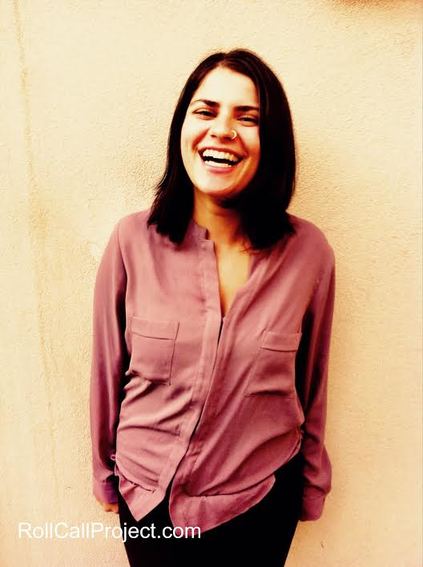 Years in Education: 4--6 Malaysian + White Female Immigrant First Generation American Middle and High School Math Teacher Q: What do you have in common with your students? A: My students are all recent immigrants and refugees to the U.S. I share the fact that I am an immigrant with them but I moved here under different circumstances than them and at a much younger age so my transition was different. I don't know what it is like to be Muslim in America but I know what it is like to be a womxn of color and someone who is committed to racial and social justice. While I may not share everything the same with my students, I know that our oppressions are rooted in each other and their fight is my fight. Together in solidarity we find our strength. Q: Does it matter that students and teachers have things in common? A: Yes! Sharing common experiences leads to trust. You do not need to have everything the same as your students, differences cause us to push one another to help each other grow, but seeing someone who you can find parts of your self in matter. It is important that students see themselves as potential educators, or where ever their path may lead; and it is important for teachers to see themselves in their students, to have that empathy and understanding. There is a reason that there are so few teachers of color and why students of color continue to be disenfranchised. My hope is through collectivity we can change that and truly be in solidarity. Saraswati teaches at the Seattle World School, which serves primarily immigrant and refugee students. She is a Washington State Teacher Leader and in 2016 she won the Imagine Us Award for Bold and Visionary Leadership in Equity and Justice. Follow her on Twitter @saraswatinoel. 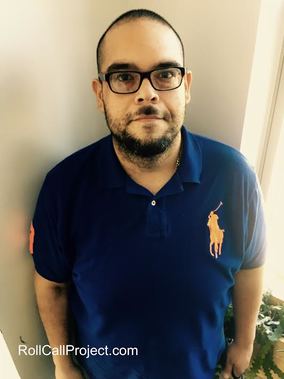 Years in Education: 16-20 Latino Heterosexual Male Former High School History Teacher District Technology Facilitator Q: What do you have in common with your students? A: I grew up in Union City, New Jersey where I have worked in schools for the last 16 years. I started as a classroom history teacher and eventually became a tech facilitator for the District. Union City is a predominantly Latino community. There are many things I share with my students like food, language, folk lore, idioms and so on, due to the fact that I'm Latino myself and also grew up in this same community. Being that Union City is an urban community, we also share some common evils. When I was a student, I also experienced poverty, drugs, gangs and other negative things. I still clearly remember walking to and from school and seeing these evils in the streets and corners. I can relate to students' peer pressures, family pressures, dealing with poverty, and dreaming of one day getting out. I can sit with troubled kids and talk about some of the things they see on their end. This really opens up my relationships with my students because I'm not seen as an outsider or another un-relateable adult. I can also relate to their hopes, dreams, motivation and needs. I can plant seeds of bigger dreams, bigger aspirations, and life outside of Union City. I always talk about the benefits of living in our community as well. I try to show them that they have the opportunity of an academic education, but they also a street smarts that they learned from hard knock lessons. Q: Does it matter that students and teachers have things in common? A: Having common ground allows for teacher and students to jump into getting down to work quicker. No need for a long transition phase or a “getting to know” sessions. Being from the same community allows me to come to class with an understanding of what our students experience and see every day. This allows for a more pleasant work flow and space. Walls are instantly tore down when teacher and students share common things. Marcos is a 2017 TED-Ed Innovative Educator. He is a leader in the makerspace movement. To learn more about what Marcos is doing to facilitate hands-on student creativity and leadership, follow him on Twitter @mrnavas. 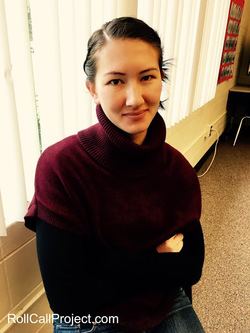 Years in education: 4-6 Asian + Caucasian Heterosexual Female Middle School Math Teacher Q: What do you have in common with your students? A: I am exactly like my students. My students are growing up in an affluent suburb of a larger city. I went to school in the North shore suburbs of Chicago. I would have classified my upbringing as upper middle class much like the students that I teach. I am mixed race, much like many of my students, or at least they are one or the other race. I had the same experiences they had, I hear their stories and I have those same stories. I am just like my students in almost every way. Q: Does it matter that students and teachers have things in common? A: I have taught in 3 schools before this school, and I am finally at a school where I find the students the most similar. The first and second schools I taught in, there were major religious sects present, I am not religious. The third school I taught in was a large transient immigrant population and high population of free/reduce lunch students, this is not the kind of school I went to. I find that at the current school I am at, I can relate to my students, and I share their same stories. They say that you teach how you were taught, perhaps I do in some ways, I am always trying to challenge and enrich their thinking versus trying to motivate them to want to learn. They already want to learn, much like I had wanted to. I will never be a good teacher to the students who need motivating; I am not a cheerleader. I will never be a good teacher to those who have had a different upbringing than me; I cannot relate. I believe that for me to be the best teacher I can possibly be, I need to be able to relate to my students; have things in common with them. I love the school that I teach at, probably because this is the kind of school I went to. Follow Regen on Twitter @regenlorden. |
ROLL CALLHumanizing the gaps separating teachers and students. Archives
October 2019
Categories
All
|
Proudly powered by Weebly

 RSS Feed
RSS Feed